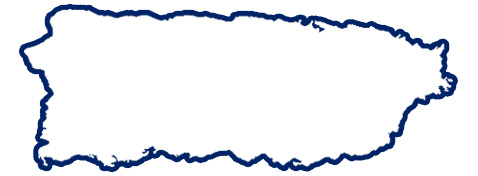- Personal
- AccountsHow can we help you?ToolsMy Online Bank 24/7
- Access your accounts
- Deposit and withdraw
- Pay your bills
- Transfer funds from your accounts
- Credit Cards & LoansHow can we help you?ToolsApply for a personal loan to consolidate your debt
- From $2,000 up to $75,000
- 12 to 84 months’ terms
Benefits for credit card customersLearn more - Insurance & InvestmentsNeed insurance?Plan for the futureQuote an Insurance
Contact one of our representatives.
Insurance ClaimsBegin your claim here, call 787.706.4111 (dial 1 for Customer Service) or visit our offices on workdays, Monday through Friday from 8:00 a.m. to 5:00 p.m.
- ServicesTargeted SegmentsMore ServicesMy Online Bank 24/7
- Access your accounts
- Deposit and withdraw
- Pay your bills
- Transfer funds from your accounts
Turns and Appointments in branchesLearn more
- Accounts
- Business
- Popular One
- About us

How can we help you?
Ninth decade
1973 – 1983
Puerto Rico
- After so many years of prosperity, Puerto Rico faced a crisis due to an economic recession in the United States. It was caused by multiple international crises and the high cost of petroleum because of wars in the Middle East.
- The petrochemical industry in Puerto Rico falls apart.
- Years of instability high level of unemployment, strikes movements, and land seizures because of a lack of housing. This marked the end of exporting workers to the U.S. based on cheap labor.
- In 1974, the federal government implemented a series of social programs to alleviate the crisis in Puerto Rico. The food stamp program on the island begins.
- In 1976, Congress passed Section 936, which exempted American companies from federal income tax on earnings generated from their operation in Puerto Rico, until they repatriated them to the continental United States.
- With the 936 begins a surprising comeback and recuperation in Puerto Rico. Hundreds of manufacturing companies, especially pharmaceutical companies, arrive on the island. This creates jobs and earnings in all sectors of the economy.
- Thanks to the 936, Puerto Rico occupied the first spot on the list for investment for American corporations at global level. The 936 also drove the growth of the banking industry on the island.
- The economic incentives created by the 936 permitted a massive entry of American and Spanish capital. The 936 would last another 20 years.
- In 1976, Carlos Romero Barceló was elected Governor of Puerto Rico.
A segment of the Puerto Rican diaspora returns to the island, trying to escape the ravages of the recession in the mainland United States. They encountered a similar situation in Puerto Rico. Puerto Rico was the site of the Panamerican Games. Arturo L. Carrión, executive of Banco Popular, presides over the Organizing Committee. Because of social tensions, these years were notable for perturbing events of considerable importance: the land seizures known as Villa sin Miedo, the events at Cerro Maravilla, and the strike at the University of Puerto Rico.

Banco Popular
- The decade saw great advancements in technology for Popular, led by Richard L. Carrión. Banco Popular’s ATMs were connected to one another and with the bank’s systems.
- The ATH card was launched, which could be used to pay at businesses, and the TeleBanco Popular was established.
- In 1979, the Fundación Banco Popular was created, which focused on education and community service.
- Due to the oil crisis, the economy was paralyzed, and the construction sector was the most severely impacted. Most the construction projects on the island went bankrupt, which in turn tremendously affected Popular.
- The FDIC intervened in the Banco Crédito y Ahorro Ponceño’s collapse in 1978, and el Popular acquired 36 of its branches, and its credit card accounts and mortgage services.
- In this decade, Banco Popular had two presidents: José Luis Carrión in 1973, and Héctor Ledesma in 1978.
Banco Popular confronted the instability with a significant reduction in its earnings. But during the crisis, the bank continued to finance housing and gave the government a line of credit for 20 million dollars for housing projects. In 1976, Cupey Center, the computer and operational center for el Popular, opened its doors. With the arrival of companies due to the 936, American and Spanish banks establish themselves on the island. Thus, begins a fierce competition among banks. Banco Popular opens its first branch in the Virgin Islands, in Santa Cruz.

Music
- Salsa was the rhythm of this decade. Cortijo’s group disintegrated, but it gave the way to El Gran Combo, with Rafael Ithier as its director.
- Some of the maximum talents of salsa in New York who were hitting their stride in this period were Ray Barreto, Tito Puente, Eddie Palmieri, Héctor Lavoy, Willie Rosario, Willie Colón, and Tito Nieves. Soon after came Mark Anthony and La India. Gilberto Santa Rosa and Victor Manuelle began to stand out in this period.
- Latino music promotion companies were formed, such as Alegro Records, Fania Records, and RMM.
- Don Pablo Casals (1977) and Pedro Flores (1979) both died during this decade.
- The Nueva Trova movement. In these years, Tony Croatto and groups like Haciendo Punto en Otro Son managed to recapture the legacy of traditional Puerto Rican music.
- La Familia Ayala y la Cepeda continued with their folkloric ballets, as did many other groups. Notwithstanding, la Familia Sanabria, José Nogueras, Pedro Guzmán y su Jíbaro Jazz, Los Pleneros del Quinto Olivo, among others, pushed against the sea and sky in maintaining their musical traditions. Andrés Jiménez was committed with folk music.
In the last 50 years, only three danzas have achieved notable fame, and two of these were from the 1970s: “Tu vives en mi pensamiento” by Eladio Torres and “Verde Luz” by Antonio Cabán Vale. Both composers revived danza with performers of international repute: Danny Rivera, Marco Antonio Muñiz, Ruth Fernández, Cheo Feliciano, and the Orquestra Filarmónica de Puerto Rico. The commitment to bolero continued to be the life mission of Puerto Rican artists of that genre. Among those who distinguished themselves in bolero were Chucho Avellanet, Julio Angel, and Danny Rivera. Merengue was popular during this period. In rock, Roy Brown and Noel Hernández were the first Puerto Rican rockers to compose original music in Spanish. Wilkins and Glenn Monroig were also popular in this period. The boy band Menudo achieved international fame.

Christmas Tree
- Artificial trees were no longer considered as fabulous as they once were, so a preference for natural ones returned.
- This period is remembered for its satin elements, usually in red and gold.
- The trees top with lights inside becomes commonplace.
- Crystal ornaments were replaced by plastic painted to simulate crystal.
 Puerto Rico
Puerto Rico 


